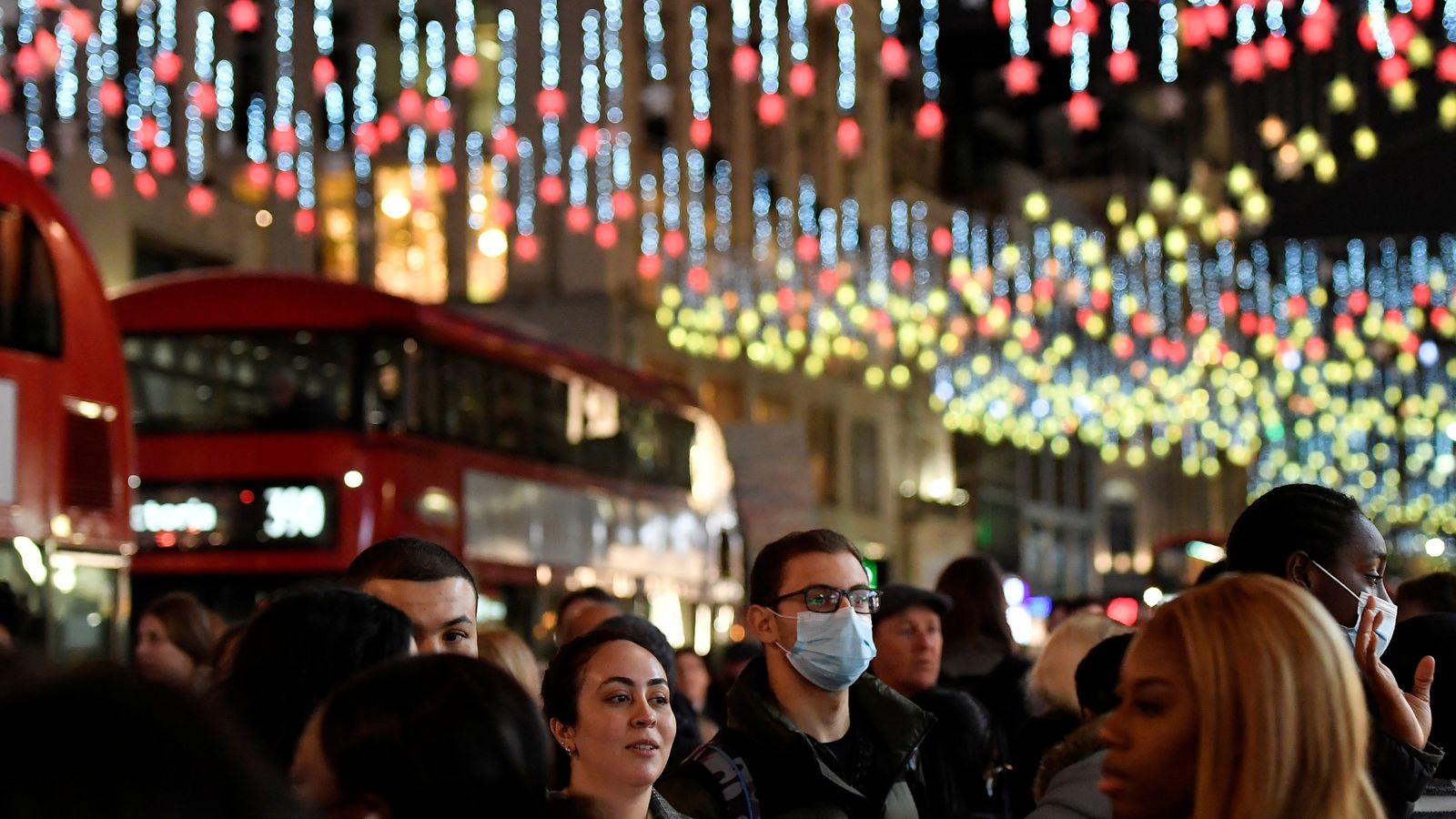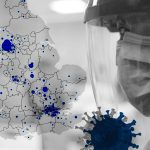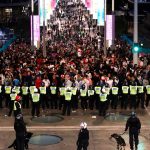COVID cases should stay “fairly flat” up to Christmas but are likely to get worse in the New Year – and areas with low jab rates could be worst affected, says a leading expert.
Professor Tim Spector, head of the Zoe COVID study app – the world’s largest study into the virus, said he didn’t expect a big rise in cases during the festive season.
“It looks like it’s going to stay fairly flat – hopefully not get worse before Christmas – after that I think it will get worse again,” he told Sky News.
He said there was currently not much difference in case rates regionally and any significant rise would be driven by the extent to which children infect unvaccinated people.
“I think it’s going to be story of areas of the country that have these pockets of unvaccinated people that are going to suffer the most,” said Prof Spector.
“And that could be within regions – around certain hospitals, particularly deprived parts of the country. I think that’s where we are going to see some of these problems.”
The ZOE app – which has four million users globally – has already recorded a “pick up” among children in the UK over the last five days, said the epidemiologist.
COVID-19: How many more people might die of coronavirus in UK and how will European countries fare? Here’s what the data suggests
Guadeloupe: Situation ‘very difficult’ as COVID protests continue in French overseas territory
COVID-19: Northern Ireland’s coronavirus case rate is far higher than the rest of the UK and its vaccination rate is lower
He said the “honeymoon” of half term, which helped supress infections, was over and it appeared “30-40-year-old parents” were increasingly becoming infected.
However, he said the good news is that people in their 50s, 60s and 70s “are not really affected yet”.
With countries such as Austria and the Netherlands fighting a surge in cases and imposing new lockdown restrictions, he warned there was “no room for complacency or some of the smugness I’ve heard from some politicians”.
Prof Spector said hospital admissions remained high, adding: “We’re no longer the worse [country]… but we’re not the best either.”
Other experts have also said the UK appears further along the Delta variant timeline than European neighbours, which should help keep a lid on cases for now.
Please use Chrome browser for a more accessible video player
It comes as people in Northern Ireland have been told to work from home as it deals with the highest case rate in the UK.
Infections there have risen from about 400 for every 100,000 people to just under 600 since the start of November.
NHS and government guidance has also changed to recommend people take a rapid lateral flow test before going to “crowded and enclosed spaces” – apparently covering scenarios such as Christmas shopping.
Previously, people were advised to test twice a week.
The uptake of the UK’s booster jab programme remains vital in heading off serious illness this winter, emphasised Prof Spector.
“If we can do that fast enough for the next few weeks and protect those vulnerable people, we can hopefully keep most people out of hospital,” he said.
Some 15.6 million people have now had a third jab, with studies suggesting it gives a big jump in protection back to over 90%.






















